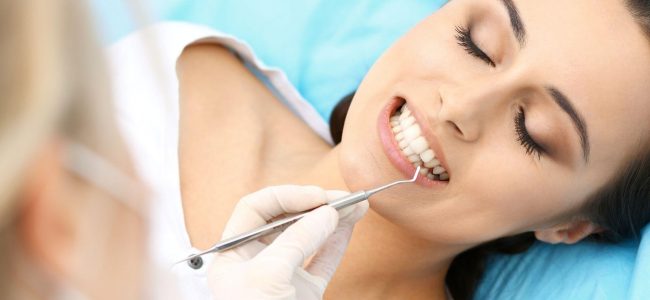Is Gingivitis Reversible?
When it comes to caring for your oral health, gingivitis is often at the top of a patient’s concern list. Gingivitis is an inflammation of gum tissue around the teeth that can be painless or have mild symptoms, meaning many people suffer from it without being aware that it is happening. Once it is diagnosed, many people take this as a sign to improve their oral health routine, but is it too little too late?
The good news is that gingivitis is reversible with good oral hygiene and help from Ideal Dental.
What Causes Gingivitis?
The build-up on your teeth, called plaque, is meant to be removed through careful and routine brushing and flossing. When this plaque isn’t removed properly, it becomes a harder substance called tartar. Tartar builds up at the base of your teeth, causing irritation on your gums. This then creates an area that more plaque can build on top of, causing more irritation. This cycle leads to gingivitis after going unnoticed or untreated.
Most gingivitis occurs as a result of poor dental care, but this is not always the case. Some people are more susceptible to gum disease, such as pregnant women or those going through puberty and menopause, as hormonal changes impact the bacteria in your mouth. Smoking, diabetes, and vitamin deficiencies can also increase the risk of gingivitis.
The best thing you can do is prevent gingivitis by knowing when you are in an at-risk group and being diligent with your dental care, both at home and through regular cleanings. However, sometimes gum disease still occurs.
Recognizing Gingivitis
Many people with gingivitis can go for months or even years without noticing there is an issue. If symptoms do appear, the first sign is usually a small amount of blood on your toothbrush or in the sink during routine brushing. This can be accompanied by gums that look more red or less firm than they should be; they may also be more sensitive.
Your dentist and dental hygienist can usually diagnose gingivitis simply by looking at your gums. If you are regularly having your teeth cleaned, they should be able to alert you to an issue early on in the disease. However, if you notice a change in your gums or are concerned about gingivitis, you can make an appointment to be evaluated.
Treating Gingivitis
Gingivitis can be reversed through the elimination of the tartar that is causing irritation in your gums. Your dentist will start with a thorough cleaning of your teeth to remove all traces of tartar, plaque, and any bacteria that has built up in your mouth. They may also do something called root planting, which smooths the root surfaces and discourages further build-up. From there, it will be important to implement a dental care routine that prevents further damage to the gums or more tartar build-up.
If your gums are further irritated by anything like crowns, bridges, or other restorations that make plaque removal difficult, your dentist may need to restore these items in order to allow for full healing.
Any damage done to your gums can be reversed with good oral hygiene, and you will likely see the return of pink and healthy gum tissue within a few weeks of the cleaning. If gingivitis is not properly treated, it can develop into a condition called periodontitis, which is not reversible and requires a lifetime of management.
Whether you suspect you have gingivitis or simply want to make sure your oral hygiene is sufficient, the team at Ideal Dental is here to help. We can perform a check on your gum health, take care of your routine cleanings, or help begin your recovery from existing gingivitis. Contact Ideal Dental today to book your first appointment.
